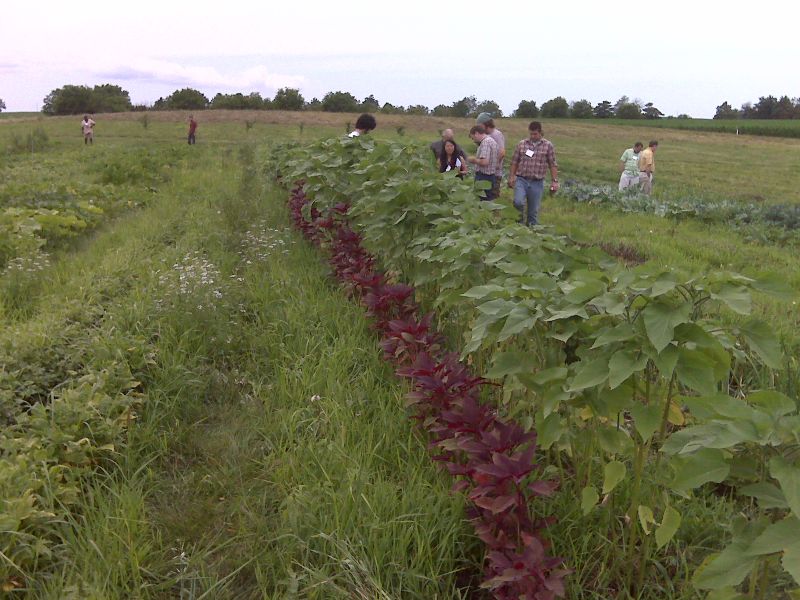Student Farms: The Next Sustainable Frontier
- by tribe
Student farms are hardly a new concept. However, it seems that after the height of the counterculture food movement of the 1960s and 70s, the idea of growing food on your own campus was not as high on students’ priorities list. That has all begun to change in recent years, as students all over the country (and the world!) are physically taking back the land and growing produce in a sustainable way. This idea is becoming so popular that the Rodale Institute has developed a directory of student farms and gardens to try to keep track of all of these new hotbeds of social and political activity. Though I have been on the board of a student garden committee at my university and am presently undertaking research for my internship at Bon Appétit about this subject, it shames me to say that I had never actually stepped foot on one of these farms. All of that changed two weeks ago when I had the opportunity to attend the Sustainable Agriculture Education Association’s (SAEA) Third Annual Conference entitled “Facilitating Sustainable Agriculture Education.”
As I got off the plane in Ames, Iowa where the SAEA conference was to be held, I wondered what awaited me. I drove past countless farms on the 45 minute drive from the airport to my hotel that impressed the part of me that had never seen such a traditional American landscape. And then, the next day, as I sat in the conference room with student farmers and educators, the passion and importance of the student farm movement became real to me. To students, this is not just about learning to grow your own food (though that is undeniably a vital part of this type of activism); instead, digging your hands in campus dirt is more about questioning the sociopolitical status quo and the country’s seemingly inherent conventional food system. According to Damian Parr, a doctoral student at the University of California at Davis, student farms offer a place for experiential education. It’s not just about textbooks and lecture halls; student-run farms and gardens help to make learning more of a hands-on activity. As the conference went on, I truly began to understand that student farms are not merely places for seed germination, but arenas for discussion about sustainable food and ecology and intellectual growth for the students themselves.
Later on, I had the opportunity to take a hay-ride trip to visit the Iowa State University Organic Farm (yes, that’s right, a hay ride). The ISU Farm is unique in that each student who participates gets his or her own plot and is in charge of personally cultivating it. So, as I walked through the rows of vegetables and herbs, I realized that the existence of this farm was completely based on student energy. I spoke to one of these students, who discussed how the farm offers him a place to practice sustainable agriculture and to develop a sense of community around these issues. He loves gardening so much that he has recently begun work to get a masters degree in Sustainable Agriculture; all of this is based on the gardening he did on the student farm as an undergrad.
At the ISU Farm, as students work the land on their individual plots, they are “experiencing” education and developing the autonomy and free-thinking mind that Damian had discussed earlier that day. They are also getting organized, whether they realize it or not, around the sustainable food system. Though prior to my experience in Iowa, I had spoken to student gardeners all over the country as research for the related project I am doing at Bon Appétit, seeing a student-run farm while at the SAEA Conference put it all into perspective for me. I feel so privileged to have attended the conference as a student. I say this because now I realize that it is through student farming ventures that my generation (the millennials, Gen Ys, whatever you want to call us) are truly helping to shift the perception of what is necessary to eat well and eat healthy.
The student-run farm at Iowa State University
– Nina Merrill, Student Intern
